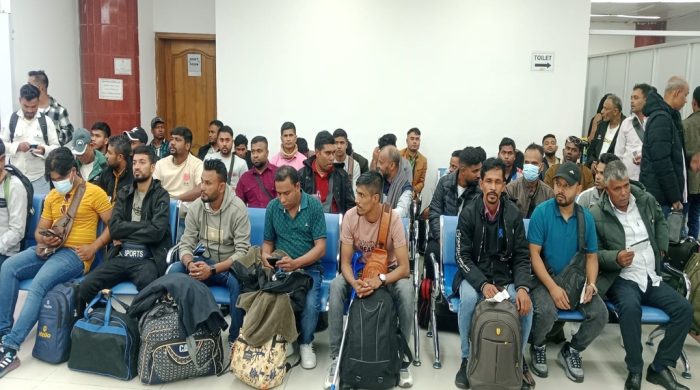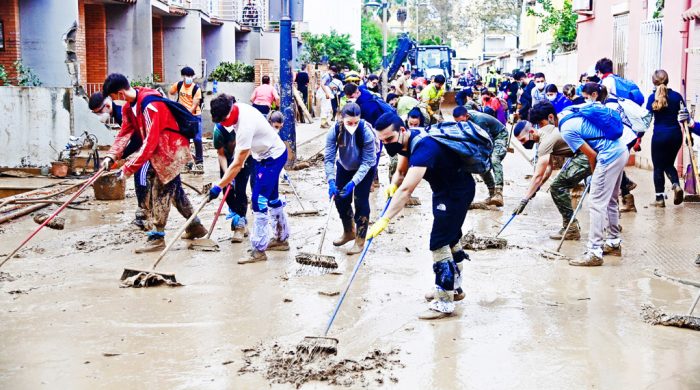BIWTA falling short of target to restore abandoned waterways

- Update Time : Tuesday, September 12, 2023
- 15 Time View

Although the government planned to restore 10,000 kilometres of navigable waterways by excavating rivers and removing silt, only about 7,000 km of waterways have been made operational since 2010 to last year.
Out of this, 3,800 km were already operational. That means only 3,200 km of abandoned waterways have been restored, according to multiple sources of Bangladesh Inland Water Transport Authority.
According to sources, under a master plan to excavate 53 inland waterways, the first phase targeted restoration of 10,000 kilometres of 24 waterways by 2025.
However, various organisations of vessel owners using inland waterways say that 7000 km of waterways have been activated on paper. Many waterways are becoming abandoned due to lack of proper dredging and removal of silt.
Rights activists and experts say that owing to unplanned digging and removal of silt, navigability development is not getting the expected results.
According to the Ministry of Shipping, due to shortage of excavators and dredgers, river excavation and dredging work was disrupted earlier, but now there was no such crisis.
Around 38 new dredgers including auxiliary vessels have been added to BIWTA’s fleet in the last 14 years. The number of dredgers in its fleet is now 45. Besides, more than 50 dredgers of private companies have been involved in river excavation, said MoS sources.
On February 10, 2020, Khalid Mahmud Chowdhury, state minister for shipping, said in the Jatiyo Sangsad that a master plan for dredging had been taken up to protect navigability in waterways. About 10,000 km of navigable waterways will be restored by re-dredging 178 rivers through BIWTA. The state minister spoke about the same plan while inaugurating the Bhogai-Kangsa river excavation at Netrakona on May 25, 2019.
Earlier on October 17, 2017, after the inauguration of the capital dredging of the Bhairab-Katiadi waterway at Kaliprasad Union Parishad ground in Bhairab, Kishoreganj, the then Shipping Minister Shajahan Khan said that the government has taken the initiative of dredging 53 waterways at a cost of Tk 11,500 crore.
According to the sources concerned, a plan was taken in 2009 to restore 10,000 km of waterways by excavating 24 waterways and the project work started in 2010. However, an account signed by additional chief engineer of BIWTA Dredging Department Sayedur Rahman shows that 800 km of waterways’ navigability has been developed in six years from 2010 to 2016 under the development and revenue fund.
On the other hand, the River Safety and Traffic Management Department of the same organisation said that during 2015-16 fiscal year, the vessels operated on 6,000 km waterways in the monsoon and 4,347 km in the dry season.
Another letter of this department in 2017 said that the length of navigable waterways has increased by 547 km due to special attention of the government.
A review of the above statistics shows that BIWTA had no success in restoring abandoned waterways in the first six years. Besides, the transparency and accountability of the organisation in river digging and removal of silt have come under question due to two types of information from the two departments.
According to the sources concerned, from 2017 to June this year, around 2,400 km more of defunct waterways have been excavated. However, not all waterways have undergone necessary navigability development. It’s impossible to fulfil the target by 2025 due to this slow pace of river digging.
Bodiuzzaman Badal, senior vice president of Bangladesh Inland Water Transport (passenger carrier) Association told the UNB, “River digging and dredging have been done on paper. Actually waterways are not being restored.”
Besides, many routes from Dhaka to several destinations have been abandoned during the last one decade, Badol alleged.
He also said that they proposed to include a launch owner and a journalist for transparency and accountability in dredging activities. But BIWTA ignored it.
Former director general of Water Resources Planning Organisation, also a renowned environmentalist, engineer M. Inamul Haque told the journalists that some mega projects of river digging failed to protect public interest as many rivers had been excavating unnecessary.
The authorities concerned should exchange views with the people of river surrounding areas before finalising any project, he added.
M Inamul also said that the process of river excavation and removal of silt were unplanned.
Rokibul Islam Talukder, chief engineer of BIWTA’s dredging department claimed that river digging was properly done. He told journalists that around 3500 km waterways have been restored since 2010 in the first phase.
Denying allegations of irregularities and lack of accountability regarding dredging of the first phase project, he said that any excavation or dredging work started according to third party’s hydrographic survey. The BIWTA maintains the routes regularly after completing the work, he added.

























